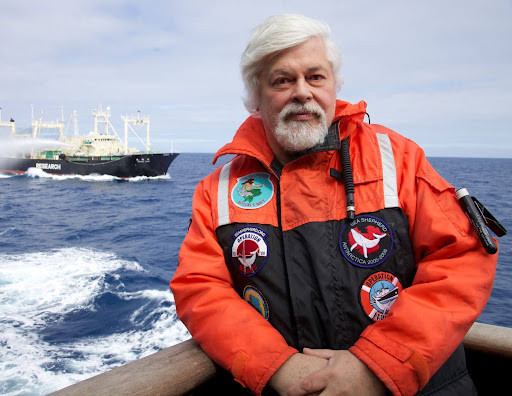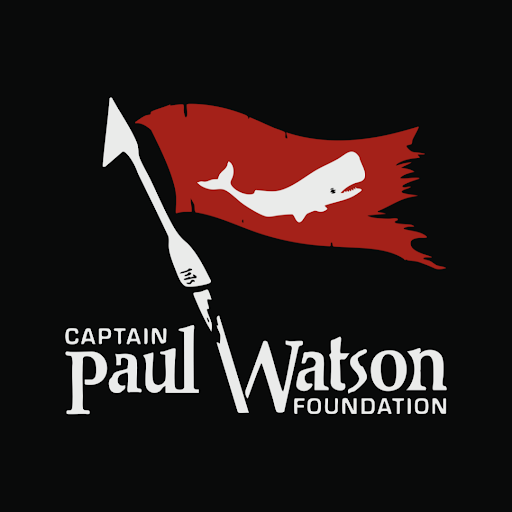Why Krill Conservation is Vital for Preserving the Whale Ecosystem: Exploring Captain Paul Watson's Synergistic Mission

Over the years, there has been a significant rise in initiatives and efforts aimed at safeguarding marine biodiversity. From whales to penguins, and sharks to turtles, these animals have long commanded public attention and protection, with many preservation campaigns that have risen to protect them from being hunted.
Although many have succeeded in their efforts, a deeper issue remains unresolved beneath the surface. This threatens the very foundation of marine life: the overfishing of Krill, a tiny crustacean often forgotten yet indispensable to the survival of preserved species such as whales, penguins, and seals.
As krills are overfished in large numbers, their impact reverberates through the depths of the Southern Ocean, which is the biggest krill fishery in the world. As these species are being harvested at unsustainable rates for the development of health supplements, protein superfood, and farm animal feed, many animals within the Antarctic ecosystem have become deprived of sufficient fodder for their survival.
"Large factory vessels are picking up krill in the millions, taking food out of the mouths of whales and penguins, and they're being rendered into protein sources for supplements and livestock. This is extremely harmful to marine life," says renowned marine wildlife conservationist Captain Paul Watson, who is taking active measures to preserve the marine ecosystem and whale life.
As the founder of Sea Shepherd Conservation Society and the Captain Paul Watson Foundation, Watson has long stood at the frontline of ocean defence and is now bringing his passion and commitment to preserve the heart of the Southern Ocean. He has dedicated over 50 years of his life to protecting the whale ecosystem, executing several successful missions to halt whaling operations in regions all around the world.
"We cannot claim to care about whales while allowing the food they rely on for survival to be stolen from beneath them," Watson states. "There's no moral difference if you're bringing a harpoon or starving it by depleting its food supply, you're still killing the whales. They need to be protected, and to protect them also means to protect what feeds them."
Krill is the cornerstone of the Antarctic ecosystem, feeding everything from blue whales, the largest animals to ever exist, to seals, penguins, and countless seabirds. Despite their tiny size, their ecological role is massive.
Rich in omega-3, protein, and vitamin A, it's not hard to decipher why krill has become the next touted supplement, and has been left at the mercy of large-scale industrial fishing. However, as they hold such a pivotal role in the marine ecosystem, removing them from the equation can bring a collapse to the fundamental food web, and this is the very issue that Watson aims to tackle.
With the Captain Paul Watson Foundation, in collaboration with Sea Shepherd France and Brazil, Watson has launched a new mission to stop the overfishing of krill before the consequences spiral further out of control. Their vigorous method, or as Watson likes to call it, "aggressive non-violence method," involves putting a stop to krill fishing using vessels to intervene as the fishing operations take place.

Through his aggressive non-violent intervention using vessels, coming from Australia and Brazil, Watson aims to garner global attention by leveraging his tactics to shed light on the industrial exploitation of the krill population. And this is not just a protest. "Our initiatives are totally in compliance with the regulatory authorities that allow for NGOs to intervene to protect endangered species and threatened habitats," Watson explains. "We're stopping illegal or harmful operations without causing injury to anyone."
There's also a deeper environmental link that gave Watson an additional impetus for his Krill preservation missions. Krill feed on phytoplankton, which have declined by nearly 40% since 1950. This degradation in the marine food chain has cascading effects not only across the entire marine ecosystem but also for life on earth. In fact, Phytoplankton produce around 70% of the world's oxygen supply, making krill protection even more pivotal.
For many, krill may not be the face of marine conservation, but they are the foundation of it. As they continue to diminish in exponential numbers, it calls for the need to raise a louder voice, not just for the big titans of the ocean, but also for the small ones.
With the mission commencing its operations by the end of the year, preserving krill is just a stepping stone towards their larger mission. "This isn't just about saving tiny crustaceans," Watson emphasizes. "It's about preserving an entire ecosystem. When you save krill, you're saving whales, penguins, and many more aquatic animals out there. You're saving the ocean, and that's the ultimate goal behind what we do."
© Copyright IBTimes 2025. All rights reserved.





















